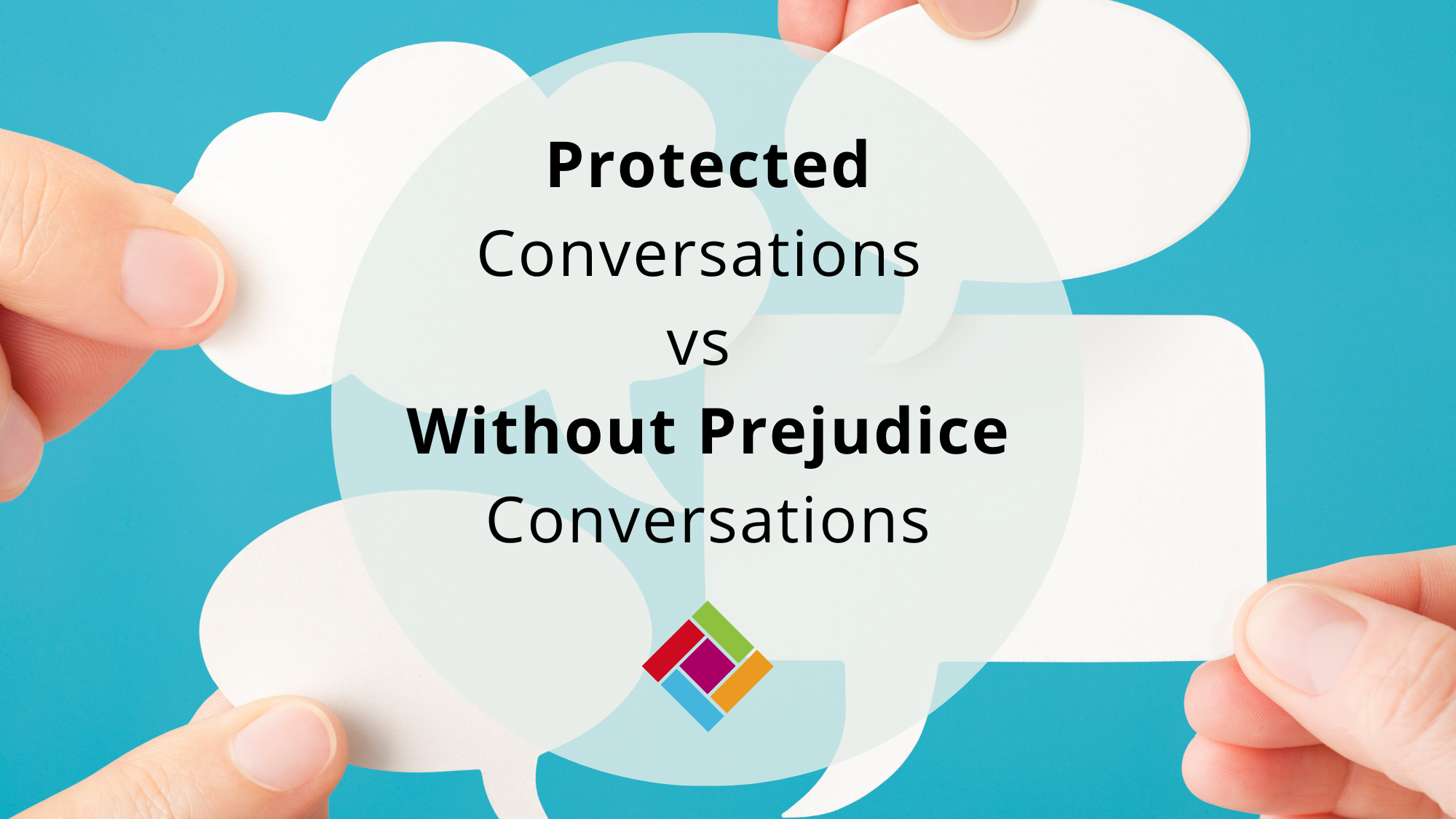
Introduction
When employment issues arise, employers may want to discuss a potential exit with an employee in a way that reduces legal risk. Two common approaches are a protected conversation and a without prejudice conversation. Although both provide a degree of confidentiality, they work in different ways under UK employment law.
What is a Protected Conversation?
A protected conversation is a statutory tool under Section 111A of the Employment Rights Act 1996. It allows an employer and employee to have an “off the record” discussion about ending employment, usually linked to a settlement agreement.
- No dispute needs to exist before the conversation takes place.
- The conversation cannot usually be referred to in ordinary unfair dismissal claims.
- However, it does not apply to claims involving discrimination, whistleblowing or automatic unfair dismissal.
What is a Without Prejudice Conversation?
A Without Prejudice conversation is based on common law. It protects genuine settlement discussions when a dispute is already underway between the employer and employee.
- There must be a genuine dispute for the protection to apply.
- Conversations are generally inadmissible in tribunal proceedings if they form part of settlement negotiations.
- Protection can extend to a wider range of claims, including discrimination, as long as settlement is being genuinely attempted.
Key Differences Between Protected and Without Prejudice Conversations
- Protected conversation – No existing dispute required, but protection is limited to ordinary unfair dismissal claims.
- Without prejudice conversation – Requires a dispute, but can cover a broader scope of claims.
Why Employers Need to Know the Difference
Misunderstanding the distinction between a protected conversation and a without prejudice conversation can expose employers to legal risk. If you rely on the wrong type, there is a chance the discussion could be used as evidence in tribunal proceedings. Employers should always seek professional advice before starting these conversations to ensure they are legally protected.
Chop’d
“We opened our first Chop’d store in 2004, and now have 15 stores across London, Leeds and Manchester. We sell over 20,000 salads and thousands of soups and stews every week. As a rapidly growing hospitality business, we realised that we needed to engage an expert partner to make sure that we were able to resolve our HR challenges quickly and pragmatically and so enlisted the support of Bespoke HR in 2005. The team have assisted us in a number of different areas from employee disputes and redundancies to TUPE and help with recruitment. Working with Bespoke HR has been seamless, and we are reassured to know we have HR support on tap so that we can get on with growing our business. I have recommended Bespoke to a number of my industry colleagues and would recommend them to any small or medium sized business.”
Operations Director, Chop'd